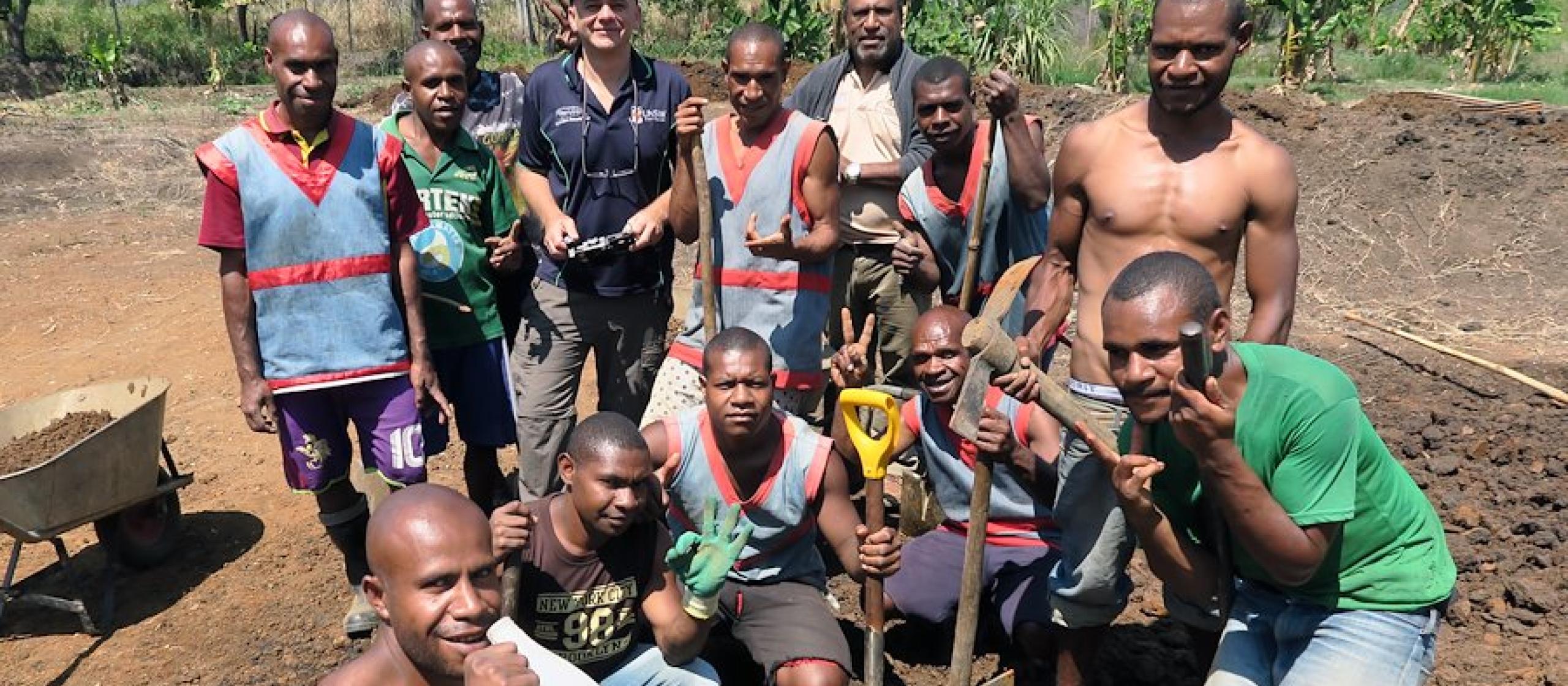- HomeHome
-
About ACIAR
- Our work
- Our people
-
Corporate information
- ACIAR Audit Committee
- Commission for International Agricultural Research
- Policy Advisory Council
- Agency reviews
- Executive remuneration disclosure
- Freedom of information (FOI)
- Gifts and benefits register
- Information publication scheme
- List of new agency files
- Contracts
- Legal services expenditure
- Privacy impact assessment register
- Commonwealth Child Safe Framework
- Benefits to Australia
- Careers
- 40 years of ACIAR
-
What we do
- Programs
- Cross-cutting areas
- Resources
- Where we work
-
Funding
- Research projects
- Fellowships
-
Scholarships
- John Allwright FellowshipScholarships to study in Australia for ACIAR partner country scientists to have Australian postgraduate qualifications
- ACIAR Pacific Agriculture Scholarships and Support and Climate Resilience Program
- Alumni Research Support Facility
- Publications
- News and Outreach
Date released
25 September 2018
The Fish for Prisons Program is teaching prisoners in Papua New Guinea the technical knowledge and expertise to improve their livelihoods, while also delivering significant social benefits, writes Jesmond Sammut, Associate Professor at UNSW and ACIAR project leader.
Fish farming research, under the ACIAR Inland Aquaculture Project in PNG, provides technical knowledge and expertise to the National Fisheries Authority (NFA) Fish for Prisons program. University of New South Wales (UNSW), Australian Nuclear Science and Technology Organisation and NFA staff work alongside the wardens from PNG Correctional Services to train, monitor and mentor prisoners and ex-prisoners. The main goal is to teach livelihood skills, but the spin-offs are making an even greater difference.
Fish farming keeps prisoners active and builds emotional resilience and self-esteem. Working alongside them is an opportunity to hear their stories—how they ended up in prison and the type of person they aspire to be. Seeking redemption, regaining social status and becoming useful members of their community are common themes.
Farming fish also enables prisoners to add much-needed protein to their diet. Physical activity, through building and maintaining ponds, improves their health and outlook on life. Prisoners run over to the ponds with nets in hand and buckets of fish feed to show off their fish husbandry successes.
Corporal Alois Siune from Bihute Prison near Goroka, speaks with pride about the impacts of the program. ‘Former prisoners become better men. They provide for their families and community. They reflect on their past and look to the future positively. They become accepted again and let go of shame and stigma. They don’t reoffend,’ he says.
Moxy, from the Asaro tribe, speaks openly about the changes fish farming has brought. He has regained his place in the community and is now a lead farmer. Moxy takes pride in his nickname, ‘Daddy Fish’, as he recalls his former life of crime, his incarceration, his time on the training program and a subsequent decade of success as a free man and a fish farmer.
‘Whenever I feel down, or I am tempted to do wrong, I sit by my fish ponds and look at what I achieved. It brings peace and comfort, and those negative feelings disappear. I can provide food, clothing and buy things with money I have earned from the ponds I dug and the fish I have stocked, cared for and then sold,’ says Moxy.
Gaius still has more time to serve, but like many others involved in the Fish for Prisons program, he feels his time in prison is not idle. He has a daily routine and has set life and livelihood goals with mentoring from the team. His day starts with breakfast and then he spends time on the ponds, caring for fish and maintaining the infrastructure. Wardens trained to farm fish oversee his activities, and ACIAR project team member Joe Alois visits regularly to monitor his progress. Gaius has plans—grand plans—but they are achievable. On release, he will dig ponds and help others to do the same, share farming knowledge and enrol himself in formal aquaculture training at the College of Fisheries, another NFA resource that supports capacity building for people in PNG.
‘When I am released from prison, I will become somebody again,’ he says, without the anger that once led him to prison. He is affable and softly spoken, but his eyes light up as he outlines his plans, and his voice breaks with excitement.
A year ago, prisoners from Baisu Prison near Mount Hagen were facing starvation. They are now part of the Fish for Prisons program, with support from Jacob Wani from NFA and the ACIAR project team. Ponds have been constructed and soon fish will be a regular part of the prison diet.
While the focus of the program has been in the Eastern Highlands Province, other provinces have adopted the model and word has even travelled to other countries, where there is now interest in implementing the same strategy.
The Fish for Prisons program is one of several NFA initiatives involving the ACIAR inland aquaculture project. A Fish for Schools program and a TAFE-equivalent program at the Maria Kwin Centre are also changing lives in PNG. The ACIAR project is transforming lives, for the better.



